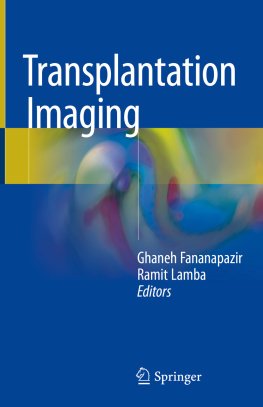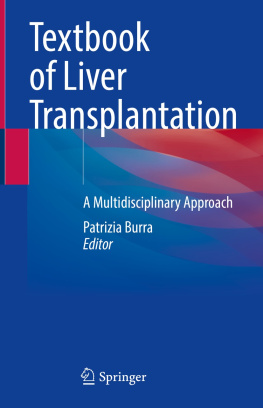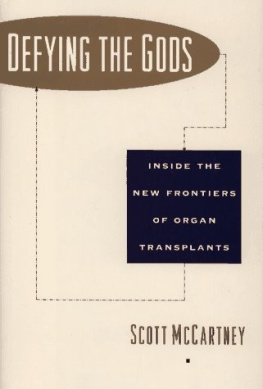Originally published in 1978 by The University of Chicago Press.
Published 2002 by Transaction Publishers
Published 2017 by Routledge
2 Park Square, Milton Park, Abingdon, Oxon OX14 4RN
711 Third Avenue, New York, NY 10017, USA
Routledge is an imprint of the Taylor & Francis Group, an informa business
New material this edition copyright 2002 by Taylor & Francis.
All rights reserved. No part of this book may be reprinted or reproduced or utilised in any form or by any electronic, mechanical, or other means, now known or hereafter invented, including photocopying and recording, or in any information storage or retrieval system, without permission in writing from the publishers.
Notice:
Product or corporate names may be trademarks or registered trademarks, and are used only for identification and explanation without intent to infringe.
Library of Congress Catalog Number: 2001041589
Library of Congress Cataloging-in-Publication Data
Fox, Rene C. (Rene Claire), 1928
The courage to fail: a social view of organ transplants and dialysis /
Rene C. Fox and Judith P. Swazey; with a new introduction by authors
[New ed.].
p. cm.
Revised ed. published by University of Chicago Press, 1978.
Includes bibliographical references and index.
ISBN 0-7658-0741-6 (pbk: alk. paper)
1. Medical innovationsSocial aspects. 2. Transplantation of
organs, tissues, etc.Social aspects. 3. HemodialysisSocial aspects.
I. Swazey, Judith P. II. Title.
RA418.5.M4 F68 2001
362.19795dc21
2001041589
ISBN 13: 978-0-7658-0741-0 (pbk)
This is the fourth time over the course of more than three decades that we have composed an introduction to the co-authored books generated by our collaborative research and reflections on social, cultural, and ethical aspects of organ replacement in American society. The Courage to Fail , first published in 1974 and republished in a revised edition in 1978, was followed in 1992 by Spare Parts . Viewed consecutively these booksalong with the account of the pioneering work done with the artificial kidney and kidney transplants during the 1950s in Rene Fox's Experiment Periment Perilous (1959)span virtually the entire contemporaneous history of clinical organ transplantation, dialysis, and human experimentation with artificial hearts.
The shift in tone of our book titles, from The Courage to Fail to Spare Parts , reflected our moral "disquietude" about the expansion that organ transplantation has undergone over time"its magnitude, its scope and the medical and cultural fervor by which it [was being] driven" to repair and remake people in this fashion (Fox and Swazey 1992: xv). In the final chapter of Spare Parts , we announced that for personal and professional reasons we had decided to "leave the field"to disengage ourselves from conducting any further first-hand research in this area. Our decision did not connote either estrangement or indifference on our part, but rather a certain degree of physical and emotional distancing. We have continued to closely track and animatedly discuss developments and issues in organ replacement.
Looking back at The Courage to Fail from this vantage point, we are struck by how new the transplantation of solid organs and chronic dialysis were when we began our research in 1968. The first successful kidney transplant had been performed in 1954, the first liver transplant in 1963, the first heart transplant in 1967, and in 1960 chronic dialysis became possible with the invention of the cannula-shunt. We vividly recall the world drama that erupted around the first wave of heart transplants, the clinical moratorium upon them that subsequently ensued, and their quiet resumption by a few experienced teams in the 1970s. At this juncture, liver transplantation was still in its infancy and exhibiting some of the classical traits of the "black years" of risky therapeutic innovation, with a high mortality rate and daunting problems of surgical technique. The early 1970s also ushered in what we termed the "democratization of dialysis." Through the passage of federal legislation, patients with end-stage renal disease became uniquely eligible to have most of their treatment costs covered by Medicare.
Toward the end of the 1960s, a new, multidisciplinary area of inquiry and action had begun to emerge that concentrated its attention on ethical questions and quandaries to which certain advances in biology and medicine had contributed. From the outset, organ replacement, especially transplantation, was one of the foci of this nascent field that became known as "bioethics." In both the first and second editions of The Courage to Fail , we commented on the link that we saw between the "new biology" and medicine, the problems of uncertainty, meaning, life and death, social solidarity, allocation and scarcity, and intervention in the human condition associated with transplantation and artificial organs, and what appeared to us to be an increasing preoccupation with medicine-centered societal questions of values and beliefs. But nowhere in these texts does the term "bioethics" appear. At the time, neither we, nor some of the founders of the field with whom we had professional contact, were inclined to view the kind of sociological and historical studies we had made as "bioethical" in their genre or in their implications.
None of the phenomena and issues, or their social and ethical import, that we examined in The Courage to Fail and in Spare Parts have vanished from the landscape of organ replacement. They recurrently appear in medical and bioethical literature and conferences, state and federal policy arenas, and print and electronic media, belying the "routinization" of transplants and dialysis that has allegedly taken place since their clinical inception. One of the most fundamental and tenacious phenomena, for example, is the persistence of the rejection reaction as the central problem of biomedical uncertainty, despite the advances in knowledge of the biology of organ and tissue rejection that have been made, and the development of more efficacious immunosuppressive drugs that has occurred.
Transplantation as a Gift of Life
Since the first organ grafts were performed in the mid-1950s, we have pointed out, transplantation has been defined by the medical profession, organ procurement agencies, and the public as a "gift of life"a concept that has been consistently utilized as the major slogan to encourage organ donation. This has reinforced, but not necessarily created, the powerful psychological, social, cultural, and existential experiences that donors, recipients, their families, and transplant teams undergo as concomitants of this at-once bodily, and more-than-corporeal, way of giving parts of oneself to known or unknown others. To a remarkable degree, what we have called these "gift-exchange" dimensions of organ transplantation were presciently described and analyzed in the early 1900s by the French sociologist Marcel Mauss in his classic essay, The Gift , through his delineation of the triple set of "symmetrical and reciprocal" obligations to offer, accept, and repay that the proffering of a gift entails, the bond that the gift and the obligations attached to it create between giver and receiver, and the strains that they also involve. These attributes of organ transplantation do not seem to have faded with the passage of time, or to have been diminished by the supposedly less "extraordinary" medical and surgical status now attached to transplantation. Notably, for example, what we identified as the "anthropomorphization" and the "tyranny" of the gift are still pervasively experienced by organ recipients. Many still grapple with the unrequitable magnitude of the gift received, and with the haunting sense that some of the psychic and social as well as the physical qualities of the donor are transferred with his or her organ into their body, personhood, and life. And, in the case of cadaveric transplants, they also may have guilt-ridden feelings about the fact that the organ received ensued from the death of an unseen, anonymous benefactor.








